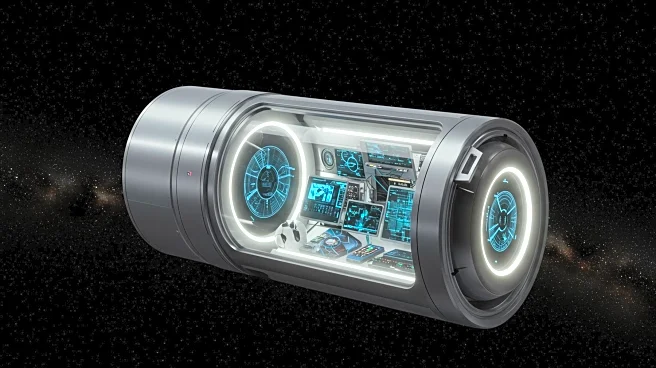What's Happening?
SpaceX's Dragon capsule has successfully returned from the International Space Station (ISS), carrying 6,700 pounds of advanced technology. This mission highlights the collaboration between NASA and private enterprises in expanding space exploration. The cargo includes robotic systems and educational materials, promising technological innovation and broadening the scope of space-based research. Key projects include the MISSE-20, which tested material durability in space, and the Astrobee-REACCH robots, which demonstrated potential for satellite servicing and debris management. Additionally, the Story Time from Space initiative aims to inspire young minds by integrating space science into classrooms worldwide.
Why It's Important?
The return of the Dragon capsule marks a significant milestone in space exploration, showcasing the potential for technological advancements that can reshape our understanding of space and terrestrial technologies. The MISSE-20 project provides crucial insights for designing future spacecraft capable of withstanding harsh space conditions, which is vital for deep-space missions. The Astrobee-REACCH robots could revolutionize spacecraft management, extending satellite lifespans and improving safety. The OPTICA experiment's advancements in imaging technology have implications for disaster response and environmental monitoring, enabling more efficient data collection. The Story Time from Space initiative fosters a passion for science among children, nurturing future explorers and innovators.
What's Next?
The successful return of the Dragon capsule underscores the ISS's role as a hub for scientific and technological advancement. Future missions are anticipated to bring more groundbreaking discoveries and technologies, further shaping our journey into the cosmos. The continued evolution of robotic systems like Astrobee-REACCH will be essential for efficient space operations, while advancements in imaging technology will enhance data collection for global challenges. Engaging young minds through educational initiatives like Story Time from Space is crucial for sustaining momentum in space exploration.
Beyond the Headlines
The implications of these advancements extend beyond immediate technological benefits. Ethical considerations arise in the management of space debris and the potential for robotic systems to replace human roles in space operations. The integration of space science into education highlights cultural shifts towards valuing STEM fields and inspiring future generations. Long-term shifts may include increased international collaboration in space exploration and the development of policies to address the environmental impact of space activities.








